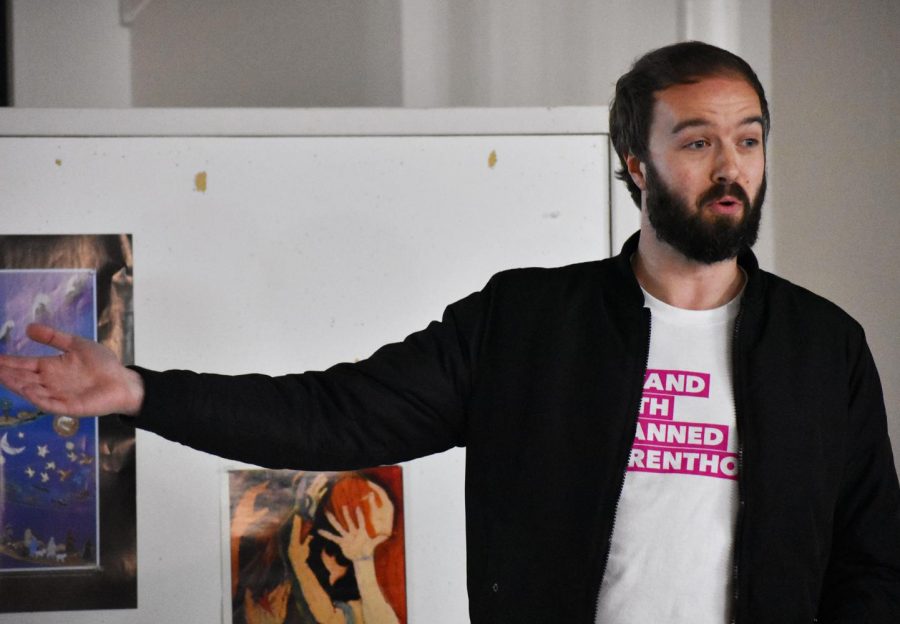Planned Parenthood faces federal funding risks
Despite past issues, activists say Pullman Planned Parenthood is supported by community
KEISHA BROKAW | The Daily Evergreen
Director of Public Affairs for Planned Parenthood Paul Dillon addresses federal funding threats.
October 13, 2017
Current legislative matters could affect the local Planned Parenthood clinic, which serves many patients who fall under the federal poverty level.
Striving to educate the community, local organization Palouse ProActive invited speaker Paul Dillon, director of public affairs for Planned Parenthood of Greater Washington and Northern Idaho on Wednesday evening.
“There’s a lot at stake right now,” Dillon said.
The majority of the Pullman community generally supports Planned Parenthood, said Kimberly Carper, one of the founding members of Palouse ProActive. She recalled the support of the community when arson was committed against the local clinic in 2015.
Members of the community may have limited access to healthcare besides the Planned Parenthood clinic, Dillon said. About 70 percent of patients fall below the federal poverty level in the Pullman area, according to a Planned Parenthood report.
Dillon explained current legislative matters on defunding Planned Parenthood, and the implications for the Pullman community. Defunding Planned Parenthood would limit access to preventative healthcare services and education programs that are available to the public.
“When people hear Planned Parenthood, they automatically think ‘abortion’,” a community member said.
However, abortion services make up just three percent of the total medical services Planned Parenthood provides, according to a 2015-2016 annual report. By law, federal funds received by Planned Parenthood cannot be used for abortions. This law prohibits Title X funds to be used for abortion as a method for family planning. Title X is a federal grant that provides family planning and preventive health services to individuals.
A major legislative matter Dillon discussed was a previous Senate healthcare bill to repeal the Affordable Care Act. It would defund Planned Parenthood and other abortion-performing groups for a year. This would block Medicaid reimbursements to Planned Parenthood.
How it works: Medicaid uses federal and state funds. When states spend Medicaid on family planning, 90 percent is received in federal reimbursements. When politicians talk about “defunding,” they are referring to cutting off federal reimbursement money. The state would no longer be reimbursed as it once was, though states would not be restricted from spending money.
Cutting off federal funds from Planned Parenthood inevitably inhibits its ability to provide preventative health care. As a result, 2,342 unintended pregnancies could result from restricted funds in the region, according to a Planned Parenthood report on Congressional District 5, which includes most Eastern Washington counties.
Planned Parenthood offers a range of medical services for low-income women’s health needs, including basic primary care services, STI testing and birth control.
Cutting funds for teen pregnancy prevention programs was the second legislative matter Dillon discussed. The Department of Health and Human Services cut off grants nationwide for teen pregnancy prevention programs.
The current administration has put this money toward abstinence programs instead, Dillon said as a couple scoffs and soft giggles came from the crowd.
Besides medical services, Planned Parenthood offers sex education programs that reach 1.5 million people. Local outreach programs include Generation Action at WSU. The group hands out condoms in the CUB every Friday.
“These groups are changing campus culture,” Dillon said.









